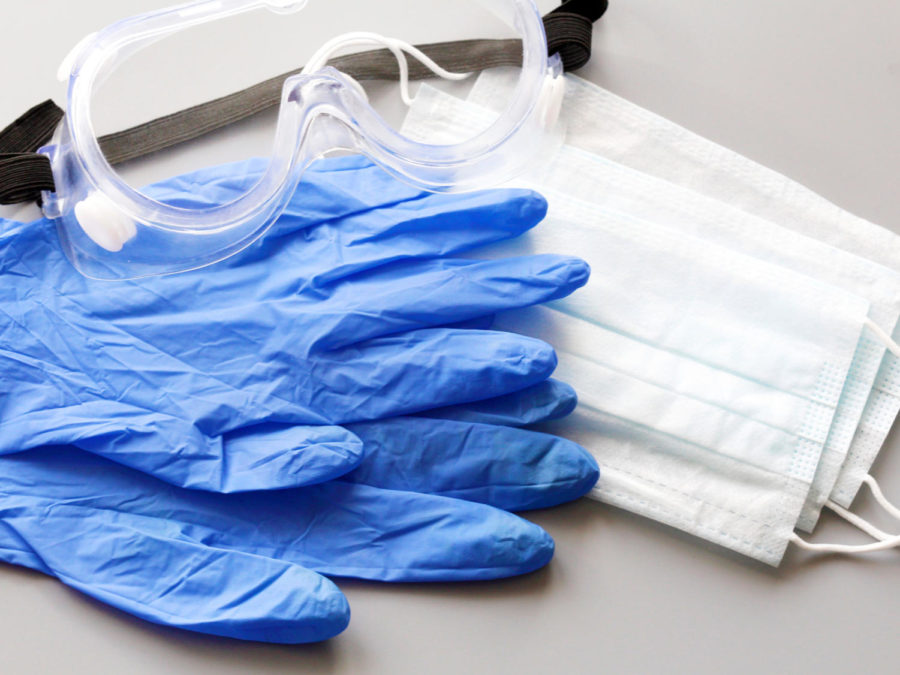A New Way to Recycle PPE
Researchers at Cornell University have come up with a process to recycle PPE and reduce its effect on the environment.
February 21, 2022
A 2021 study at MIT has shown that the COVID-19 pandemic has caused 7,200 tons of medical waste to be generated each day. Most of this waste is disposable masks, but it also includes, gloves, hand sanitizer bottles, and face shields. The pandemic waste has strained the environment, especially the ocean, where it may eventually become part of the floating trash “islands.” This waste has also contributed to global warming through the greenhouse gases released when it is incinerated before entering a landfill. Megan Chou (11) says that she sees “a lot of masks outdoors and [wishes] people could do something about this so that our trash doesn’t harm the environment.”
Michael Ryans, the Executive Director of the WHO Health Emergencies Programme, comments, “It is absolutely vital to provide health workers with the right PPE, but it is also vital to ensure that it can be used safely without impacting on the surrounding environment.” Undoubtedly, masks and other personal protective equipment (PPE) will continue to be used and discarded as the pandemic progresses; thus, scientists are working to resolve the question of what happens to pandemic-related waste after its use.
Recently, researchers at Cornell University have created a method to recycle PPE. At first glance, masks, gloves, and other medical waste appear to have practical use after they are used. However, the plastics inside PPE can be recycled and used elsewhere. One of the researchers, chemical and biomolecular engineering professor Fenqui You, claims that the recycling process is actually not very complicated. The PPE is first collected from hospitals and sent to medical waste processing and decontamination facilities to be sterilized and shredded into pieces. Next, the shredded pieces are sent to an integrated pyrolysis plant, where the PPE is converted into useful chemicals, such as ethylene, propylene, propane, butane, bauxite, and sulfur. These chemicals are further used in other projects instead of being sent to a landfill.
If the researchers’ plan were to be implemented in the state of New York, the process would cost roughly $4 million per year. Furthermore, the process would reduce the use of fossil fuels by 31.5 percent and the emission of greenhouse gases by 35.04 percent. This is mainly because PPE no longer needs to be incinerated, thereby reducing the pollution in the air. The benefits of this recycling process seem promising and could be what the world needs to relieve the stress the pandemic has placed on the environment.



































